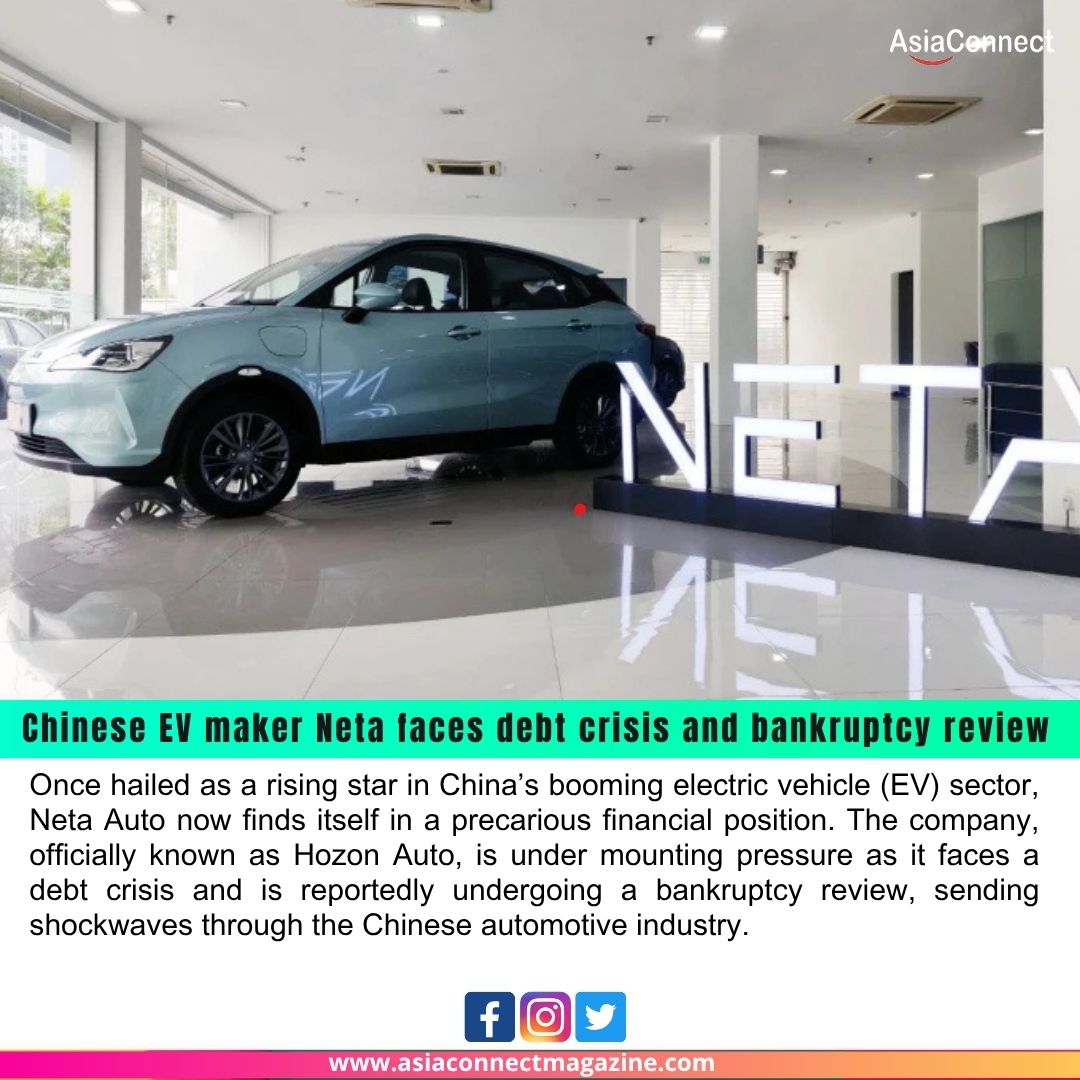Once hailed as a rising star in China’s booming electric vehicle (EV) sector, Neta Auto now finds itself in a precarious financial position. The company, officially known as Hozon Auto, is under mounting pressure as it faces a debt crisis and is reportedly undergoing a bankruptcy review, sending shockwaves through the Chinese automotive industry.
Founded with the goal of delivering affordable smart EVs to the mass market, Neta Auto made headlines by selling over 152,000 vehicles in 2022, a significant milestone that positioned it as a serious contender among China’s new energy vehicle (NEV) brands. The brand’s success was fueled by strong investor backing, aggressive marketing, and the growing demand for budget-friendly EV options across China and Southeast Asia.
However, the momentum did not last. In 2023, Neta’s sales plummeted by 16%, raising serious concerns about its long-term sustainability. The decline has been attributed to several factors: intensified competition, shrinking subsidies, and a saturated EV market dominated by giants like BYD, Tesla, and newer players such as Xpeng and Li Auto. This slowdown in sales has led to a liquidity crunch and a growing inability to meet financial obligations.
According to multiple reports, Neta Auto is currently under a bankruptcy review, a formal procedure in China that assesses whether a company is eligible for restructuring, liquidation, or potential acquisition. While no official statement has been released by the company, sources suggest that creditors have already filed claims, and operations in some regions have been scaled back or paused altogether.
Mounting Challenges in a Hyper-Competitive Market
The Chinese EV market, once an open field ripe for innovation, has matured rapidly, leaving less room for smaller or underfunded players. Neta Auto’s core market—entry-level and mid-range EVs—has become increasingly saturated, forcing price wars and eroding profit margins.
Additionally, the phasing out of government subsidies for EV purchases has hit companies like Neta particularly hard. Without the financial cushion these incentives provided, maintaining competitiveness and profitability has proven challenging. The lack of strong export diversification and reliance on domestic sales only further compounded the pressure.
A Cautionary Tale for EV Startups
Neta’s struggles serve as a cautionary tale for emerging EV startups across the globe. While the initial growth potential in the EV space is undeniably massive, sustainable success requires more than sales numbers. Companies must establish strong financial foundations, robust supply chains, and technological differentiation to survive the industry’s rapid evolution.
Industry analysts believe that unless Neta secures fresh investment or undergoes a strategic merger, its future remains uncertain. Some speculate that larger automotive players or state-owned enterprises might step in, seeing value in Neta’s existing production facilities and customer base.
Conclusion
Neta Auto’s journey from rapid rise to financial distress reflects the volatile nature of the electric vehicle market. As the company navigates bankruptcy review and explores its options, it highlights the importance of adaptability, innovation, and fiscal responsibility in a hyper-competitive sector. The next few months will be critical in determining whether Neta can recover or become another casualty in the crowded race for EV dominance.
Keywords: Neta Auto bankruptcy, Chinese EV maker crisis, Neta sales drop, Hozon Auto, EV startup debt, electric vehicle market China, 2023 EV sales decline, Chinese electric car industry, EV bankruptcy China, Neta Auto news.





